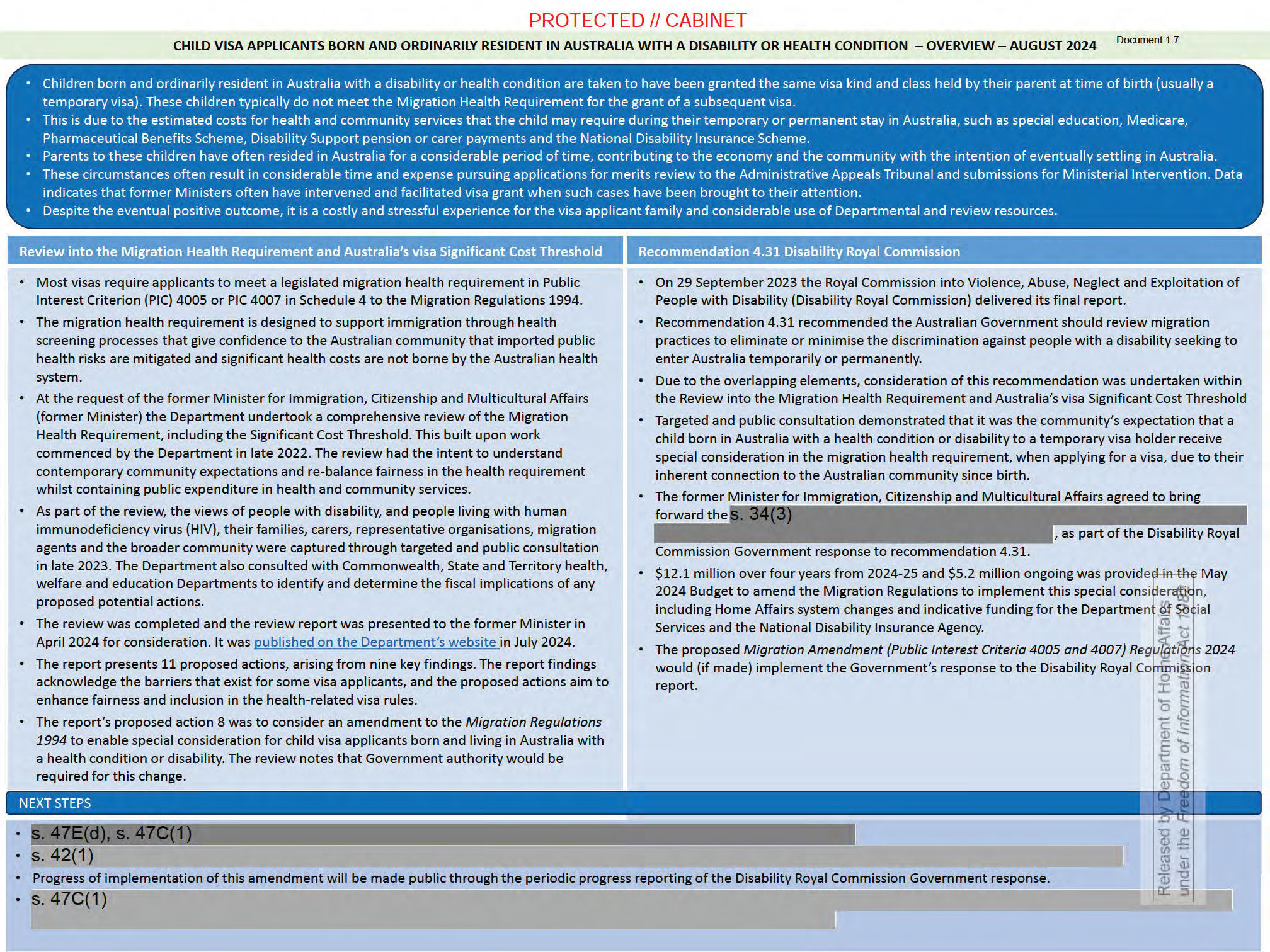
 PROTECTED – Legal Privilege
PROTECTED – Legal Privilege
Document 1
Submission
For decision
PDMS Ref. Number: MS24-001431
Date of Clearance: 03/09/2024
To
Minister for Home Affairs, Minister for Immigration and Multicultural
Affairs, Minister for Cyber Security
Subject
Approval and consideration of the Migration Amendment (Public
Interest Criteria 4005 and 4007) Regulations 2024
Timing
s. 47C(1)
Recommendations
That you:
1. s. 47C(1)
the proposed
Migration Amendment
signed / not signed
(Public Interest Criteria 4005 and 4007) Regulations 2024 at
Attachment A;
2. s. 47C(1)
the Federal Executive Council Minute
signed / not signed
Paper at
Attachment B;
3.
initial each page (on the bottom right corner) of the
initialled / not initialled
Explanatory Memorandum at
Attachment C; and
4.
approve the Explanatory Statement, including the Statement
approved / not approved
of Compatibility of Human Rights, at
Attachment D.
Minister for Home Affairs, Minister for Immigration and
Multicultural Affairs, Minister for Cyber Security
Signature………………………………………………
Date:……/……./2024
PROTECTED – Legal Privilege
1
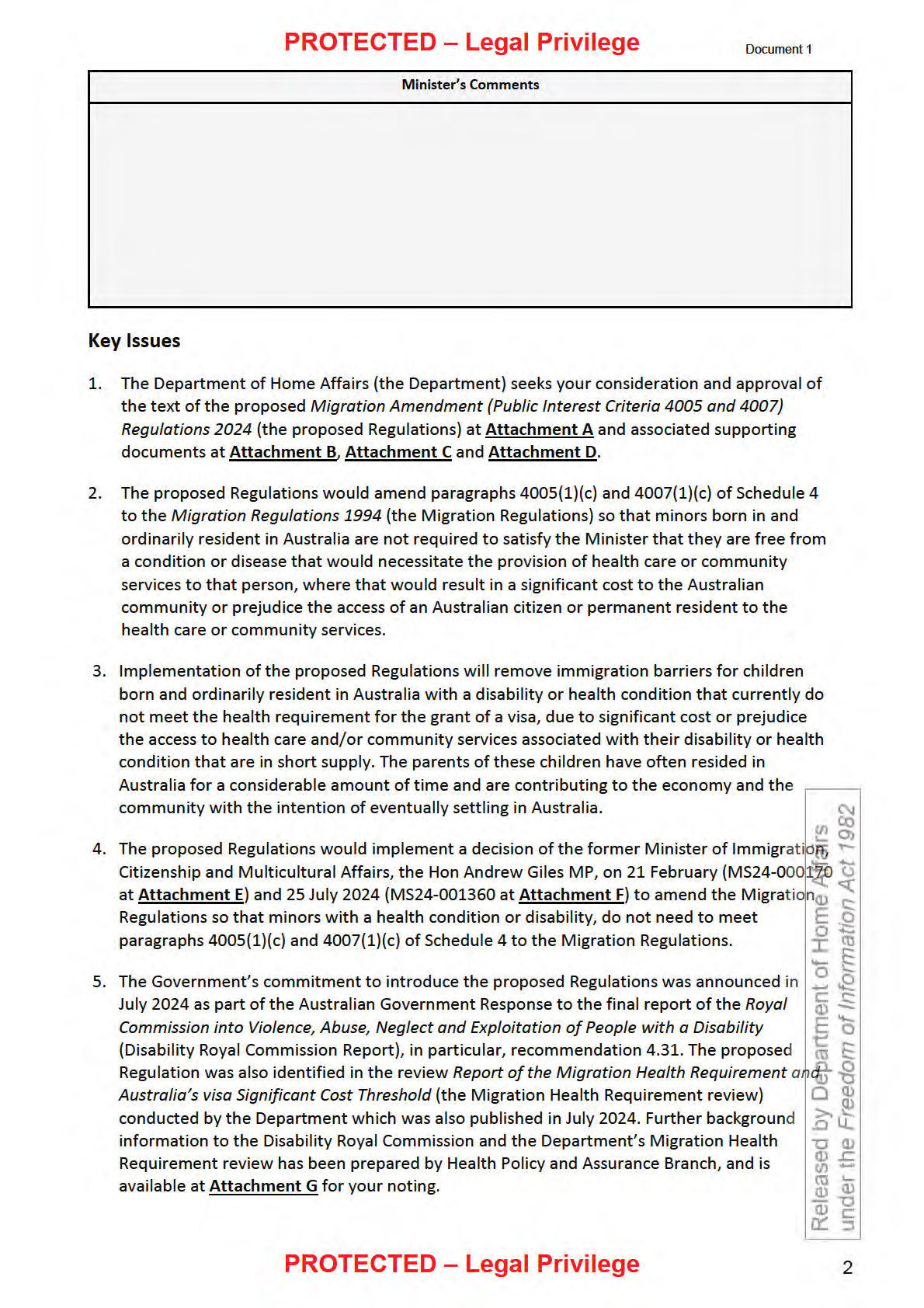
 PROTECTED – Legal Privilege
PROTECTED – Legal Privilege
Document 1
6. The documents for your signature, approval and initials (where indicated) are the:
• Proposed Regulations for your s. 47C(1)
at
Attachment A;
• Minute Paper for your s. 47C(1)
at
Attachment B;
• Explanatory Memorandum for the proposed Regulations for your
initials on each page
on the
bottom right corner at
Attachment C; and
• Explanatory Statement, including the Statement of Compatibility of Human Rights for
your
approval at
Attachment D.
7. Subject to your approval, the Department proposes to submit the proposed Regulations for
the Governor-General’s consideration at the s. 47C(1)
Background
8. Paragraph 65(1)(a)(i) of the
Migration Act 1958 (the Migration Act)
requires the Minister to,
subject to the applicant meeting the other criteria of section 65 of the Migration Act, grant
a visa if they are satisfied that the health criteria for the visa subclass has been satisfied.
Subsection 5(1) of the Migration Act defines ‘health criterion’ in relation to a visa to mean
a prescribed criterion for the visa that:
• relates to the applicant or the members of the family unit of that applicant; and
• deals with a prescribed disease, physical or mental condition, kind of examination or
treatment.
9. Part 1 of Schedule 4 to the Migration Regulations provide a number of public interest criteria
(
PIC) that visa applicants must satisfy in order for the Minister to grant them the visa. Clauses
4005 and 4007 of Schedule 4 prescribe a number of migration health requirements that the
applicant must satisfy, and paragraphs 4005(1)(c) and 4007(1)(c), in particular, both require
the applicant to be free from a disease or condition in relation to which:
(i) a person is who has it would be likely to require, or meet the medical criteria for the
provision of health care or community service; and
(ii) the provision of that care or service would be likely to:
A. result in a significant cost to the Australia community in the areas of health
care and community services (‘significant cost threshold’); or
B. prejudice the access of an Australian citizen or permanent resident to health
care or community services (‘prejudice to access’ criteria).
10. In September 2023, the
Disability Royal Commission Report was published. The Disability
Royal Commission Report recommended the Government review existing migration practices
to eliminate or minimise disadvantages against people with disability seeking to settle in
Australia (recommendation 4.31).
PROTECTED – Legal Privilege
3
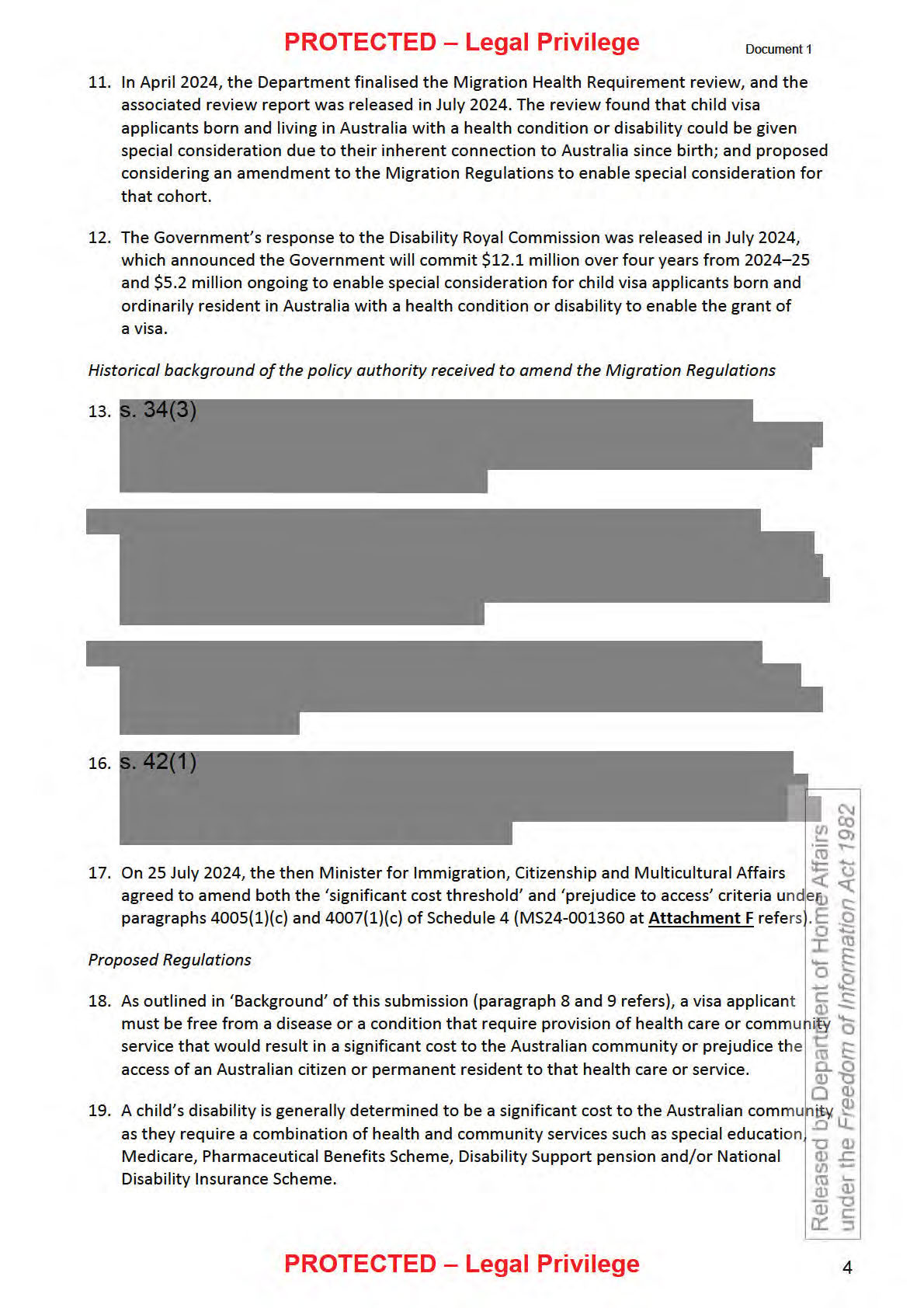
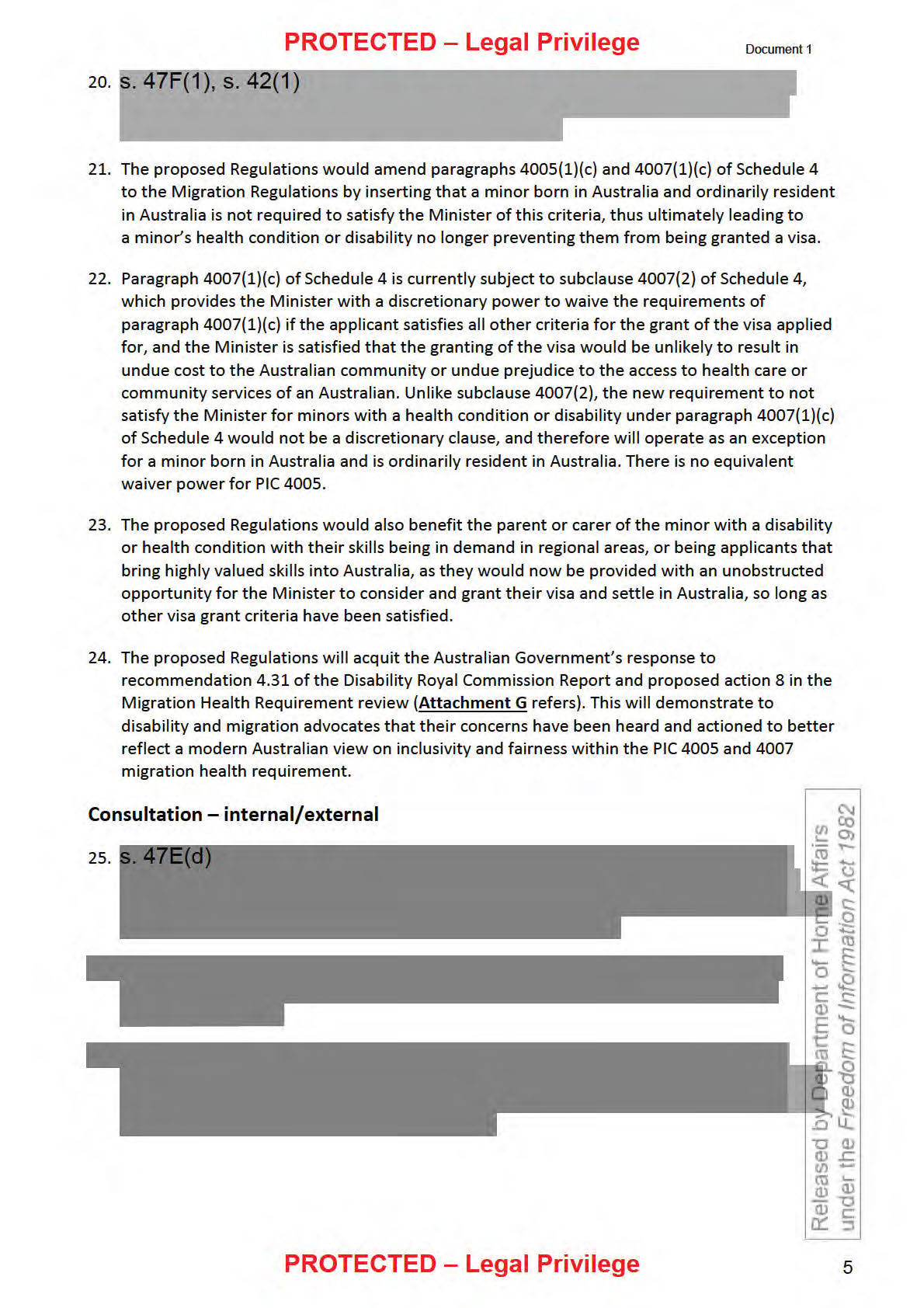
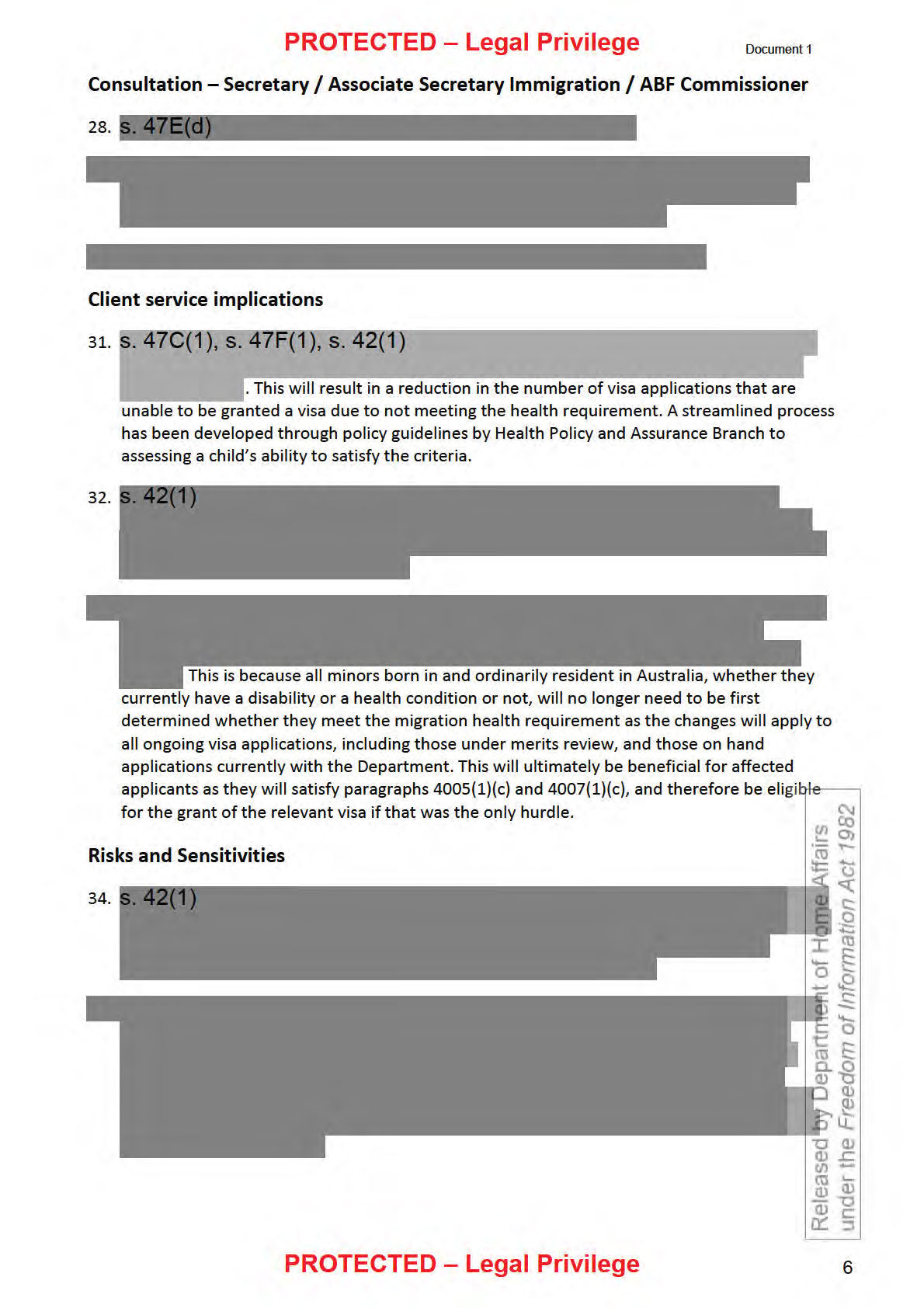
 PROTECTED – Legal Privilege
PROTECTED – Legal Privilege
Document 1
36. s. 42(1)
37. The information contained in this submission is classified and should not be publicly released
without the authority of the Department of Home Affairs. In accordance with our
long-standing practices, should you wish for unclassified media lines to be prepared in relation
to this issue please contact the Home Affairs Media Operations team –
s. 22(1)(a)(ii) @homeaffairs.gov.au.
Financial/systems/legal/deregulation/media implications
38. s. 47E(d)
PROTECTED – Legal Privilege
7
 PROTECTED – Legal Privilege
PROTECTED – Legal Privilege
Document 1
Attachments
Attachment A Migration Amendment (Public Interest Criteria 4005 and 4007) Regulations
2024
Attachment B Federal Executive Council Minute Paper
Attachment C Explanatory Memorandum
Attachment D Explanatory Statement, including the Statement of Compatibility of Human
Rights for
Migration Amendment (Public Interest Criteria 4005 and 4007)
Regulations 2024
Attachment E MS24-000170
Attachment F MS24-001360
Attachment G Overview of child visa applicants born and ordinarily resident in Australia with
a disability or health condition
Authorising Officer
Cleared by:
Kevin Cunnington
Assistant Secretary
Legislation Branch
Date: 03/09/2024
Mob: s. 22(1)(a)(ii)
Contact Officer Kevin Cunnington, Assistant Secretary, Legislation Branch, Ph: (02) s. 22(1)(a)(ii) Mob: s. 22(1)(a)(ii)
CC
Assistant Minister for Immigration
Associate Secretary Immigration
DS Chief Operating Officer
DS Executive
Chief Medical Officer
Group Manager Legal
Group Manager Immigration Policy
FAS Executive Coordination
FAS Immigration Programs
SD Health Policy & Assurance
Assistant Secretary Migration, Citizenship and International Law
PROTECTED – Legal Privilege
8
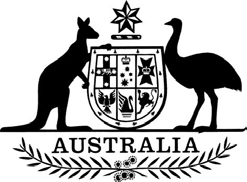

Document 1.1
Migration Amendment (Public Interest Criteria
4005 and 4007) Regulations 2024
I, the Honourable Sam Mostyn AC, Governor-General of the Commonwealth of Australia,
acting with the advice of the Federal Executive Council, make the following regulations.
Dated
2024
Sam Mostyn AC
Governor-General
By Her Excellency’s Command
Tony Burke
Minister for Immigration and Multicultural Affairs
OPC66899 - A

Document 1.1
Contents
1
Name ........................................................................................................................... 1
2
Commencement .......................................................................................................... 1
3
Authority ..................................................................................................................... 1
4
Schedules .................................................................................................................... 1
Schedule 1—Amendments
2
Migration Regulations 1994
2
Migration Amendment (Public Interest Criteria 4005 and 4007) Regulations 2024
i
OPC66899 - A

Document 1.1
1 Name
This instrument is the
Migration Amendment (Public Interest Criteria 4005 and
4007) Regulations 2024.
2 Commencement
(1) Each provision of this instrument specified in column 1 of the table commences,
or is taken to have commenced, in accordance with column 2 of the table. Any
other statement in column 2 has effect according to its terms.
Commencement information
Column 1
Column 2
Column 3
Provisions
Commencement
Date/Details
1. The whole of this
The day after this instrument is registered.
instrument
Note:
This table relates only to the provisions of this instrument as originally made. It will
not be amended to deal with any later amendments of this instrument.
(2) Any information in column 3 of the table is not part of this instrument.
Information may be inserted in this column, or information in it may be edited, in
any published version of this instrument.
3 Authority
This instrument is made under the
Migration Act 1958.
4 Schedules
Each instrument that is specified in a Schedule to this instrument is amended or
repealed as set out in the applicable items in the Schedule concerned, and any
other item in a Schedule to this instrument has effect according to its terms.
Migration Amendment (Public Interest Criteria 4005 and 4007) Regulations 2024
1
OPC66899 - A

Document 1.1
Schedule 1 Amendments
Schedule 1—Amendments
Migration Regulations 1994
1 Paragraph 4005(1)(c) of Schedule 4
Before “free”, insert “, unless the applicant is a minor born in Australia and is
ordinarily resident in Australia,”.
2 Paragraph 4007(1)(c) of Schedule 4
Before “free”, insert “, unless the applicant is a minor born in Australia and is
ordinarily resident in Australia,”.
3 In the appropriate position in Schedule 13
Insert:
Part 140—Amendments made by the Migration Amendment
(Public Interest Criteria 4005 and 4007)
Regulations 2024
14001 Operation of amendments
The amendments of these Regulations made by Schedule 1 to the
Migration
Amendment (Public Interest Criteria 4005 and 4007) Regulations 2024 apply in
relation to an application for a visa:
(a) made, but not finally determined, before the commencement of that
Schedule; or
(b) made on or after that commencement.
2
Migration Amendment (Public Interest Criteria 4005 and 4007) Regulations 2024
OPC66899 - A
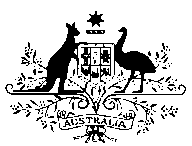

Document 1.2
MINISTER FOR IMMIGRATION AND MULTICULTURAL AFFAIRS
Departmental No. 339 of 2024
Minute Paper for the Executive Council
__________________
Subject
Executive Council
Meeting No. ......................................
Migration Act 1958
Migration Amendment
(Public Interest Criteria 4005 and 4007) Regulations 2024
Approved in Council
Recommended for the approval of Her Excellency the
Governor-General in Council that she make Regulations in
the attached form.
…………………………….
Sam Mostyn AC
Governor-General
……………………………
Tony Burke
Filed in the Records
Minister for Immigration and
of the Council
Multicultural Affairs
……………………………
Secretary to the Executive Council

Document 1.3
EXPLANATORY MEMORANDUM
Minute No. 339 of 2024 – Minister for Immigration and Multicultural Affairs
Subject -
Migration Act 1958
Migration Amendment (Public Interest Criteria 4005 and 4007)
Regulations 2024
The proposed instrument would amend the
Migration Regulations 1994 to provide that
minor visa applicants with a disability or health condition born and ordinarily resident in
Australia would no longer be required to meet certain migration health-related
requirements.
The
Migration Act 1958 (the Migration Act) is an Act regulating the entry into, and presence
in, Australia of non-citizens, and the departure from Australia of non-citizens and other
persons.
Subsection 504(1) of the Migration Act provides that the Governor-General may make
regulations, not inconsistent with the Act, prescribing matters required or permitted to be
prescribed, or necessary or convenient to be prescribed, for carrying out or giving effect to
the Migration Act.
The
Migration Amendment (Public Interest Criteria 4005 and 4007) Regulations 2024 (the
proposed Regulations) would amend paragraphs 4005(1)(c) and 4007(1)(c) of Schedule 4 to
the
Migration Regulations 1994 (the Migration Regulations) to no longer require a minor visa
applicant who was born in and is ordinarily resident in Australia to satisfy the Minister that
they are free from a disease or condition which would necessitate the provision of health care
or community services to that person, where that would result in a significant cost to the
Australian community or prejudice the access of an Australian citizen or permanent resident
to the health care or service.
Subject to sections 84 and 86 of the Migration Act, section 65 of the Migration Act requires
the Minister to grant a visa if the Minister is satisfied that:
• the health criteria for the valid visa application have been satisfied; and
• other criteria for the visa prescribed by the Migration Act or the regulations have been
satisfied; and
• the grant of the visa is not prevented by sections 40 (circumstances when
granted), 91W (evidence of identity and bogus documents), 91WA (bogus documents and
destroying identity documents), 91WB (applications for protection visas by members of
same family unit), 500A (refusal or cancellation of temporary safe haven
visas), 501 (special power to refuse or cancel) or any other provision of this Act or of any
other law of the Commonwealth; and
• any visa application charge payable in relation to the application has been paid.
Section 84 of the Migration Act provides the Minister the power to suspend processing of
visa applications, and section 86 allows the Minister to determine limitations on the number
of visas that can be granted in a financial year. Subsection 5(1) of the Migration Act defines
‘health criterion’ in relation to a visa to mean a prescribed criterion for the visa that:

Document 1.3
• relates to the applicant or the members of the family unit of that applicant; and
• deals with a prescribed disease, physical or mental condition, kind of examination or
treatment.
Applicants for most visa subclasses are required to satisfy public interest criteria, which are
set out in Part 1 of Schedule 4 to the Migration Regulations, and clauses 4005 and 4007
specify the migration health requirements that certain visa applicants must satisfy in order for
the Minister to grant or refuse to grant them the visa. Paragraphs 4005(1)(c) and 4007(1)(c)
of Schedule 4 to the Migration Regulations provide that the visa applicant must be free from
a disease or condition in relation to which the person would be likely to require health care or
meet the medical criteria for provision of a community service that would result in a
significant cost to the Australian community or prejudice the access of an Australian citizen
or permanent resident to health care or community services. This assessment must be
conducted regardless of whether the health care or community services will in fact be used by
the applicant.
This amendment forms part of the Australian Government’s response to the final report of the
Royal Commission into Violence, Abuse, Neglect and Exploitation of People with a
Disability (Disability Royal Commission Report). The Disability Royal Commission Report
was published in September 2023, and recommended the Australian Government to consider
changes to migration practices to eliminate or minimise disadvantages against people with
disability seeking to settle in Australia. In April 2024, the Department of Home Affairs
released its review and in July 2024, the Australian Government released its final response to
the Disability Royal Commission Report, both proposing to amend the Migration Regulations
to enable special consideration for child visa applicants born and living in Australia with a
health condition or disability.
The proposed Regulations would also benefit visa applicants who are the parents or carers of
a minor visa applicant with a disability or a health condition born in and ordinarily resident in
Australia, who would otherwise not satisfy the criteria for their visa only as a result of their
child having that disability or health condition and not meeting the conditions specified in
paragraphs 4005(1)(c) or 4007(1)(c).
Consultation conducted by the Department of Home Affairs in developing the proposed
Regulations is set out in the Attachment.
The Migration Act specifies no conditions that need to be satisfied before the power to make
the proposed Regulations may be exercised.
The proposed Regulations would be a legislative instrument for the purposes of the
Legislation Act 2003 and would commence the day after the instrument is registered. The
proposed Regulations would also only apply to either applications made, but not finally
determined before the commencement of the proposed Regulations, or, visa applications
made on or after the commencement of the proposed Regulations.
Details of the proposed Regulations are set out in the Attachment.
The Minute recommends that the proposed Regulations be made in the form proposed.
Authority: Section 504(1) of the
Migration Act 1958
2

Document 1.3
ATTACHMENT
The Department of Home Affairs (Department) consulted with the following external
Commonwealth Government agencies on the proposed Regulations:
• the Department of Social Services;
• the Department of Health and Aged Care; and
• the National Disability Insurance Agency.
The following external State and Territory Government agencies were consulted on the
proposed Regulations:
• Health Departments of New South Wales, Victoria, Queensland, Tasmania, South
Australia, Western Australia, the Australian Capital Territory and Northern Territory;
• Education Departments of New South Wales, Victoria and Queensland; and
• Treasury of New South Wales, Victoria, Tasmania, South Australia, the Australian
Capital Territory and Northern Territory.
The following external non-Government organisations were consulted on the proposed
Regulations:
• People with Disability Australia;
• Down Syndrome Australia;
• Welcoming Disability; and
• Australian Lawyers for Human Rights.
Public consultation conducted by the Department also occurred in November 2023. The
Department released its review after the consultation in April 2024.
Feedback on the proposed changes was positive from all consultations, with minimal risks
being identified.
3

Document 1.3
Details of the proposed Migration Amendment (Public Interest Criteria 4005 and 4007)
Regulations 2024
Section 1 – Name
This section would provide that the title of the Regulations is the
Migration Amendment
(Public Interest Criteria 4005 and 4007) Regulations 2024 (the proposed Regulations)
.
Section 2 – Commencement
This section would provide that the proposed Regulations would commence on the day after
they are registered.
Section 3 – Authority
This section would provide that the proposed Regulations are made under the
Migration Act
1958 (the Migration Act).
Section 4 – Schedules
This section would provide that each instrument that is specified in a Schedule to this
instrument is amended or repealed as set out in the applicable items in the Schedule
concerned, and any other item in a Schedule to this instrument has effect according to its
terms.
Schedule 1 – Amendments
Migration Regulations 1994
Item [1] –Paragraph 4005(1)(c) of Schedule 4
Item 1 would amend paragraph 4005(1)(c) of Schedule 4 to the
Migration Regulations 1994
(the Migration Regulations) such that a minor visa applicant born and ordinarily resident in
Australia no longer needs to meet the requirements under paragraph 4005(1)(c). The
proposed item would not benefit all minors with a disability or health condition, but rather
only those born in and ordinarily resident in Australia.
Current paragraph 4005(1)(c) of the Migration Regulations requires the visa applicant be free
from a disease or a condition in relation to which:
(i) a person would require, or meet the medical criteria that would require provision of,
health care or community services; and
(ii) the provision of the health care or community service would result in a significant
cost to the Australian community, or prejudice the access to health care or community
service of an Australian citizen or permanent resident.
The amendments made by item 1 would benefit children born in and ordinarily resident in
Australia with a disability or health condition, as it will allow them to no longer be required
to meet paragraph 4005(1)(c) despite their disability or health condition. The Minister would
now be required to grant the visa under paragraph 65(1)(a) of the Migration Act if paragraph
65(1)(a)(i) of the Migration Act was the only reason why the application would otherwise be
refused. The child, as either a primary visa applicant or secondary applicant, must still meet
4

Document 1.3
all other requirements to be granted the visa, including all other migration health
requirements criteria under clauses 4005 and 4007.
Item [2] –
Paragraph 4007(1)(c) of Schedule 4 Item 2 would amend paragraph 4007(1)(c) of Schedule 4 to the Migration Regulations to
provide that a minor visa applicant born and ordinarily resident in Australia no longer needs
to meet the requirements under paragraph 4007(1)(c). Similar to item 1, the proposed item
would not benefit all minors with a disability or health condition, but rather only those born
in and ordinarily resident in Australia.
Current paragraph 4007(1)(c) of Schedule 4 requires, subject to subclause 4007(2) of
Schedule 4, the visa applicant be free from a disease or a condition in relation to which:
(i) a person would require, or meet the medical criteria that would require provision of,
health care or community services; and
(ii) the provision of the health care or community service would result in a significant
cost to the Australian community, or prejudice the access to health care or community
service of an Australian citizen or permanent resident.
Subclause 4007(2) of Schedule 4 provides the Minister with a discretionary power to waive
the requirements of paragraph 4007(1)(c) if the applicant satisfies all other criteria for the
grant of the visa applied for, and the Minister is satisfied that the granting of the visa would
be unlikely to result in undue cost to the Australian community or undue prejudice to the
access to health care or community services of an Australian. Unlike subclause 4007(2), the
amendment made by item 2 does not need to meet the migration health-related requirements
for the affected class of persons (that is, minor visa applicants born in and ordinarily resident
in Australia).
The amendments made by item 2 would benefit children born in and ordinarily resident in
Australia with a disability or health condition, as it will allow them to no longer be required
to meet paragraph 4007(1)(c) despite their disability or health condition. The Minister would
now be required to grant the visa under paragraph 65(1)(a) of the Migration Act if
subparagraph 65(1)(a)(i) of the Migration Act was the only reason why the application would
otherwise be refused. The child, as either a primary visa applicant or secondary applicant,
must still meet all other requirements to be granted the visa, including all other migration
health requirements criteria under clauses 4005 and 4007.
Item [3] –
In the appropriate position in Schedule 13
Item 3 would insert a new Part 140 in Schedule 13 to the Migration Regulations. This Part
would provide for the application of the amendments made by this instrument.
New clause 14001 of Part 140 of Schedule
13 to the Migration Regulations would provide
that the amendment made by Schedule 1 to the proposed Regulations applies in relation to an
application for a visa made, but not finally determined, before the commencement of that
Schedule, or made on or after that commencement. This means that the proposed Regulations
would apply retrospectively to visa applications already made but not finally determined
before the commencement of the proposed Regulations, including those currently under
merits review. The proposed Regulations would also apply to new applications for a visa
made on or after the commencement of the proposed Regulations.
5

Document 1.4
EXPLANATORY STATEMENT
Issued by the Minister for Immigration and Multicultural Affairs
Migration Act 1958
Migration Amendment (Public Interest Criteria 4005 and 4007) Regulations 2024
The
Migration Act 1958 (the Migration Act) is an Act relating to the entry into, and presence in,
Australia of aliens, and the departure or deportation from Australia of aliens and certain other persons.
Subsection 504(1) of the Migration Act
provides that the Governor-General may make regulations,
not inconsistent with the Migration Act, prescribing matters required or permitted to be prescribed,
or necessary or convenient to be prescribed, for carrying out or giving effect to the Migration Act.
The
Migration Amendment (Public Interest Criteria 4005 and 4007) Regulations 2024 (the
Amendment Regulations) amends paragraphs 4005(1)(c) and 4007(1)(c) of Schedule 4 to the
Migration Regulations 1994 (the Migration Regulations) so that a minor visa applicant born and
ordinarily resident in Australia, is not required to satisfy the Minister that they are free from a disease
or condition which would necessitate the provision of health care or community services, where that
would result in a significant cost to the Australian community or prejudice the access of an Australian
citizen or permanent resident to that health care or community service.
Subject to sections 84 and 86 of the Migration Act, section 65 of the Migration Act requires the
Minister to grant a visa if the Minister is satisfied that:
• the health criteria for the valid visa application have been satisfied; and
• other criteria for the visa prescribed by the Migration Act or the regulations have been satisfied;
and
• the grant of the visa is not prevented by sections 40 (circumstances when granted), 91W (evidence
of identity and bogus documents), 91WA (bogus documents and destroying identity documents),
91WB (applications for protection visas by members of same family unit), 500A (refusal or
cancellation of temporary safe haven visas), 501 (special power to refuse or cancel) or any other
provision of this Act or of any other law of the Commonwealth; and
• any visa application charge payable in relation to the application has been paid.
Section 84 of the Migration Act provides the Minister the power to suspend processing of visa
applications, and section 86 allows the Minister to determine limitations on the number of visas that
can be granted in a financial year. Subsection 5(1) of the Migration Act defines ‘health criterion’ in
relation to a visa to mean a prescribed criterion for the visa that:
• relates to the applicant or the members of the family unit of that applicant; and
• deals with a prescribed disease, physical or mental condition, kind of examination or treatment.
Public interest criteria in Part 1 of Schedule 4 to the Migration Regulations, in particular, clauses 4005
and 4007, provide details of migration health requirements that visa applicants must satisfy in order
for the Minister to grant or refuse to grant their visa application. Prior to the Amendment Regulations,

Document 1.4
paragraphs 4005(1)(c) and 4007(1)(c) of Schedule 4 of the Migration Regulations required the visa
applicant to be free from a disease or condition in relation to which the person would be likely to
require health care or meet the medical criteria for provision of a community services that would result
in a significant cost to the Australian community or prejudice the access of an Australian citizen or
permanent resident to health care or community services. This assessment must be conducted
regardless of whether the health care or community services will in fact be used by the visa applicant.
The Amendment Regulations form part of the Australian Government’s response to the final report of
the Royal Commission into Violence, Abuse, Neglect and Exploitation of People with a Disability
(Disability Royal Commission Report). The Disability Royal Commission Report was published in
September 2023, and recommended the Australian Government to review the existing migration
practice and to eliminate or minimise disadvantages against people with disability seeking to settle in
Australia. In April 2024, the Department of Home Affairs released the ‘
Report into its Review of the
Migration Health Requirement and Australia’s visa Significant Cost Threshold’, which proposed that
child visa applicants born and living in Australia with a health condition or disability should be given
special consideration within the migration health requirement due to their inherent connection to
Australia since birth. Later in July 2024, the Australian Government released its final response to the
Disability Royal Commission Report, proposing to amend the Migration Regulations to enable special
consideration for child visa applicants born and living in Australia with a health condition or disability.
The Amendment Regulations implement the Australian Government’s commitment made in the final
response to the Royal Commission’s report by ultimately allowing a minor visa applicant born and
who ordinarily resides in Australia with a health condition and/or a disability to no longer be
disadvantaged as part of their visa grant process solely due to that health condition or disability, and
ensure fair and equal opportunity for settlement in Australia. The Amendment Regulations do not
affect requirements all other minors with a disability or health condition must meet.
The Amendment Regulations also benefit visa applicants who are the parents or carers of a minor visa
applicant born and ordinarily resident in Australia with a disability or a health condition, who would
otherwise not satisfy the criteria for their visa only as a result of their child having that disability or
health condition and not meeting paragraphs 4005(1)(c) or 4007(1)(c). Importantly, the Amendment
Regulations do not provide an exemption to the whole of clauses 4005 and 4007 of Schedule 4 to the
Migration Regulations or to other visa criteria.
The matters dealt with in the Amendment Regulations are appropriate for implementation in
regulations rather than by parliamentary enactment. It has been the consistent practice of the
Government of the day to provide for detailed valid application requirements in the Migration
Regulations rather than in the Migration Act itself, with the Migration Act also providing such
authority in the provisions listed in Attachment A.
The current Migration Regulations have been in place since 1994, when they replaced regulations
made in 1989 and 1993. Providing for these details to be in delegated legislation rather than primary
legislation gives the Government the ability to effectively manage the operation of a citizen or a non-
citizen’s entry into Australia and respond quickly to emerging needs.
A Statement of Compatibility with Human Rights has been completed in accordance with the
Human
Rights (Parliamentary Scrutiny) Act 2011. The overall assessment is that the amending Regulations
are compatible with human rights, with a copy of the Statement being available at Attachment B.
The Office of Impact Analysis (OIA) has been consulted in relation to the amendments, advising that
no Impact Analysis is required. OIA consultation reference number is OIA24-06510.

Document 1.4
Section 17 of the
Legislation Act 2003 (the Legislation Act) provides that the rule-maker must be
satisfied that there has been consultation undertaken that is appropriate and reasonably practicable
before making a legislative instrument. Information concerning consultation undertaken by the
Department of Home Affairs in developing the Amendment Regulations is set out in Attachment C.
The Migration Regulations are exempt from sunsetting under table item 38A of section 12 of the
Legislation (Exemptions and Other Matters) Regulations 2015. The Migration Regulations are
exempt from sunsetting on the basis that the repeal and remaking of the Migration Regulations:
• is unnecessary as the Migration Regulations are regularly amended numerous times each year
to update policy settings for immigration programs; and
• would demand complicated and costly training and operational changes that would impose
significant strain on Government resources and the Australian public for insignificant gain,
while not advancing the aims of the Legislation Act.
The Amendment Regulations are a legislative instrument for the purposes of the Legislation Act.
The Amendment Regulations commence on the day after registration on the Federal Register of
Legislation. Further details of the Amendment Regulations are set out in Attachment D.

Document 1.4
ATTACHMENT A
The following provisions of the
Migration Act 1958 (the Migration Act) provide the authority for
making this Amendment Regulations:
• subsection 504(1) provides that the Governor-General may make regulations, not
inconsistent with the Migration Act, prescribing matters required or permitted to be
prescribed, or necessary or convenient to be prescribed, for carrying out or giving effect to
the Migration Act;
• subsection 5(1), which defines ‘health criterion’ in relation to a visa to mean a prescribed
criterion for the visa that relates to the applicant or the members of the family unit of that
applicant, and deals with a prescribed disease, physical or mental condition, kind of
examination or treatment; and
• subsection 31(3) allow regulations to prescribe criteria for a visa of a specified class.

Document 1.4
ATTACHMENT B
Statement of Compatibility with Human Rights
Prepared in accordance with Part 3 of the Human Rights (Parliamentary Scrutiny) Act 2011
Migration Amendment (Public Interest Criteria 4005 and 4007) Regulations 2024
This Disallowable Legislative Instrument is compatible with the human rights and freedoms
recognised or declared in the international instruments listed in section 3 of the
Human Rights
(Parliamentary Scrutiny) Act 2011.
Overview of the Disallowable Legislative Instrument
Purpose of the migration health requirement
Most visa applicants are required to satisfy the migration health requirements in either Public Interest
Criterion (PIC) 4005 or PIC 4007 in Schedule 4 to the
Migration Regulations 1994 (the Migration
Regulations) in order to be granted a visa to enter and/or remain in Australia. The migration health
requirements set out in these PICs, in particular paragraphs 4005(1)(c) and 4007(1)(c) of Schedule 4
to the Migration Regulations, require, among other things, that the visa applicant be free from a disease
or condition in relation to which:
• a person who has it would be likely to require health care or meet the medical criteria for
provision of a community service, and
• the provision of the health care or community services would result in a significant cost to the
Australian community or prejudice the access of an Australian citizen or permanent resident to
health care or community services.
These assessments are based on a hypothetical person rather than on whether the health care or
community services will in fact be used by the visa applicant.
The aims of the migration health requirements are to:
• protect the Australian community from public health and safety risks;
• contain public expenditure on health care and community services; and
• safeguard the access of Australian citizens and permanent residents to health care and
community services that are in short supply (currently this is dialysis and organ transplants).
Objective of the Disallowable Legislative Instrument
This Disallowable Legislative Instrument, the
Migration Amendment (Public Interest Criteria 4005
and 4007) Regulations 2024 (the Amendment Regulations), amends PIC 4005 and PIC 4007 to no
longer require those visa applicants who are children born and ordinarily resident in Australia to satisfy
the criteria that they be free from a disease or condition that would result in a significant cost to the
Australian community or prejudice the access of an Australian citizen or permanent resident to health
care or community services.
The objective of this amendment is to reform the migration health requirement to be fairer, more
inclusive and minimise discrimination for Australian-born minor visa applicants with a health
condition or disability. The Amendment Regulations form part of the Australian Government’s

Document 1.4
response to the final report of the Royal Commission into Violence, Abuse, Neglect and Exploitation
of People with a Disability (Disability Royal Commission Report).
Targeted and public consultations demonstrated that the community’s expectation is that minor visa
applicants born and ordinarily resident in Australia with a health condition or disability should receive
special consideration in the application of the migration health requirement, due to their inherent
connection to the Australian community since birth.
The amendment applies to both new visa applications and on-hand applications, including those
currently under merits review. This is to ensure the amendment maximise the benefits of this measure
for affected families.
Human rights implications
This Disallowable Legislative Instrument may engage the following rights:
• Rights of persons with disabilities under the
Convention on the Rights of the Persons with
Disabilities (CRPD), in particular in relation to freedom of movement in Article 18.
• Rights of children under the
Convention on the Rights of the Child (CRC), in particular in
relation to children with disabilities in Article 23.
• Non-discrimination under the CRPD, and under Article 26 of the
International Covenant on
Civil and Political Rights (ICCPR).
Rights of persons with disabilities
Article 18 of the CRPD states, in part:
1. States Parties shall recognize the rights of persons with disabilities to liberty of movement, to
freedom to choose their residence and to a nationality, on an equal basis with others, including
by ensuring that persons with disabilities: […]
(b) Are not deprived, on the basis of disability, of their ability to obtain, possess and utilize
documentation of their nationality or other documentation of identification, or to utilize
relevant processes such as immigration proceedings, that may be needed to facilitate
exercise of the right to liberty of movement; […]
The amendment removes a potential barrier to obtaining a temporary or permanent visa for non-citizen
minor born in and ordinarily resident in Australia, who have a health condition or disability. Prior to
this amendment, these children, despite being born and ordinarily residing in Australia, would have
been unable to meet PIC 4005 or PIC 4007 for the grant of a visa, if their health condition or disability
would have resulted in significant cost to the Australian community or prejudice the access of
Australian citizens and permanent residents to certain health services in short supply. These barriers
were usually experienced by temporary visa holder families when applying for a permanent visa to
remain in Australia.
The application of PIC 4005 or PIC 4007 acted not only as a barrier to permanent residency for these
children and their families but also meant they were not able to benefit from the National Disability
Insurance Scheme (NDIS) which is available to Australian citizens and permanent residents. By
removing this barrier to permanent residency for these non-citizen minors, this measure means that, if
granted a permanent visa, these children could have greater opportunities to access publicly funded

Document 1.4
early intervention disability supports (such as those provided through the NDIS). These supports are
important for the child’s development and meaningful participation in all aspects of their future life.
The amendment positively engages human rights under the CRPD by ameliorating health-related
immigration barriers for minor visa applicants born and ordinarily resident in Australia with a health
condition or disability, as well as their parents who are applying for a visa with them. The amendment
supports the ability of such children to remain in Australia on an equal basis with minor visa applicants
born and ordinarily resident in Australia without a health condition or disability. Further, where such
children and their families are ultimately granted permanent residence, this amendment supports access
of the child and their family to a broader range of publicly-funded development, safety and well-being
supports, thereby supporting a broad range of rights under the CRPD, for example those in Article 26
relating to rehabilitation.
Rights of children
Article 23 of the CRC states, in part:
1. States Parties recognize that a mentally or physically disabled child should enjoy a full and
decent life, in conditions which ensure dignity, promote self-reliance and facilitate the child's
active participation in the community.
2. States Parties recognize the right of the disabled child to special care and shall encourage
and ensure the extension, subject to available resources, to the eligible child and those
responsible for his or her care, of assistance for which application is made and which is
appropriate to the child's condition and to the circumstances of the parents or others caring for
the child.
3. Recognizing the special needs of a disabled child, assistance extended in accordance with
paragraph 2 of the present article shall be provided free of charge, whenever possible, taking
into account the financial resources of the parents or others caring for the child, and shall be
designed to ensure that the disabled child has effective access to and receives education,
training, health care services, rehabilitation services, preparation for employment and
recreation opportunities in a manner conducive to the child's achieving the fullest possible social
integration and individual development, including his or her cultural and spiritual development
[…]
The amendments made by the Amendment Regulations have the effect that those visa applicants who
are non-citizen minors born and ordinarily resident in Australia will no longer be prevented from
meeting the migration health requirement if their health condition or disability would have resulted in
significant cost or prejudice the access of Australian citizens and permanent residents to certain health
services in short supply. As noted above, by removing an aspect of the migration health requirement
that acted as a barrier to permanent residency for non-citizen minors born and ordinarily resident in
Australia with a disability or health condition, this measure means that, after being granted a permanent
visa, these children will have access to publicly funded disability supports (such as those provided
through the NDIS). This supports their rights under Article 23 of the CRC as well as other rights such
as those in Article 24 relating to health.

Document 1.4
Non-discrimination
The CRPD requires countries to ensure and promote the full realisation of all human rights and
fundamental freedoms for all persons with disability without discrimination of any kind on the basis
of their disability.
Article 26 of the ICCPR states:
All persons are equal before the law and are entitled without any discrimination to the equal
protection of the law. In this respect, the law shall prohibit any discrimination and guarantee to
all persons equal and effective protection against discrimination on any ground such as race,
colour, sex, language, religion, political or other opinion, national or social origin, property,
birth or other status.
The amendment is a beneficial measure for non-citizen minors with disabilities and/or health
conditions who were born and are ordinarily resident in Australia.
Targeted and public consultation indicated concern that minor visa applicants born and ordinarily
resident in Australia suffered discrimination by experiencing immigration barriers by virtue of their
health condition or disability. The consultations demonstrated that the community’s expectation is that
minor visa applicants born and ordinarily resident in Australia with a health condition or disability
should receive special consideration in the application of the migration health requirement, due to their
inherent connection to the Australian community since birth.
The Amendment Regulations implement the Australian Government’s commitment made in the final
response to the Disability Royal Commission Report by allowing a non-citizen minor visa applicant
born and who ordinarily resides in Australia with a health condition and/or a disability to no longer be
ineligible to be granted a visa solely due to having a health condition or disability that would have
resulted in significant cost to the Australian community or prejudice the access of Australian citizens
and permanent residents to certain health services in short supply. This helps ensure a fair and equal
opportunity for these children and their families to remain in Australia, including on a permanent basis,
and promotes their rights relating to non-discrimination.
Conclusion
This Disallowable Legislative Instrument is compatible with human rights.
The Hon Tony Burke MP
Minister for Immigration and Multicultural Affairs

Document 1.4
ATTACHMENT C
The Department of Home Affairs (the Department) consulted with the following Commonwealth
Government agencies on the Amendment Regulations:
• the Department of Social Services;
• the Department of Health and Aged Care; and
• the National Disability Insurance Agency.
The following State and Territory Government agencies were consulted on the Amendment
Regulations:
• Health Departments of New South Wales, Victoria, Queensland, Tasmania, South Australia,
Western Australia, the Australian Capital Territory and Northern Territory;
• Education Departments of New South Wales, Victoria and Queensland; and
• Treasury of New South Wales, Victoria, Tasmania, South Australia, the Australian Capital
Territory and Northern Territory.
The following non-Government organisations were consulted in relation to the Amendment
Regulations:
• People with Disability Australia;
• Down Syndrome Australia;
• Welcoming Disability; and
• Australian Lawyers for Human Rights.
Public consultation conducted by the Department also occurred in November 2023. The Department
released its review after the consultation in April 2024.
Feedback on the changes was positive from all consultations, with minimal risks being identified.

Document 1.4
ATTACHMENT D
Details of the Migration Amendment (Public Interest Criteria 4005 and 4007) Regulations 2024
Section 1 – Name
This section provides that the title of this instrument is the
Migration Amendment (Public Interest
Criteria 4005 and 4007) Regulations 2024 (the Amendment Regulations)
.
Section 2 – Commencement
This section provides for the commencement of the provisions in the Amendment Regulations.
Subsection 2(1) states that each provision of the Regulations specified in column 1 of the table
commences, or is taken to have commenced, in accordance with column 2 of the table. The effect of
this is that the Amendment Regulations will commence in their entirety on the day after registration
on the Federal Register of Legislation.
A note at the foot of the table under subsection 2(1) explains that the table relates only to the
provisions of the Amendment Regulations as originally made, and will not be amended to deal with
any later amendments to the Amendment Regulations.
Subsection 2(2) provides that any information in column 3 of the table is not part of the Amendment
Regulations.
Section 3 – Authority
This section provides that the Amendment Regulations are made under the
Migration Act 1958 (the
Migration Act)
.
Section 4 – Schedules
This section provides for how the amendments in the Amendment Regulations operate.
Schedule 1 – Amendments
Migration Regulations 1994
Item [1] – Paragraph 4005(1)(c) of Schedule 4
Item 1 amends paragraph 4005(1)(c) of Schedule 4 to the
Migration Regulations 1994 (the Migration
Regulations) so that a minor visa applicant born and ordinarily resident in Australia is not required to
satisfy the Minister that they are free from a disease or condition in relation to which:
(i) a person would require, or meet the medical criteria that would require provision of, health
care or community services; and
(ii) the provision of the health care or community service would result in a significant cost to the
Australian community, or prejudice the access to health care or community service of an
Australian citizen or permanent resident.

Document 1.4
The amendments made by item 1 benefit minor visa applicants born in and is ordinarily resident in
Australia with a disability or health condition as they can meet paragraph 4005(1)(c) despite their
disability and be granted a visa by the Minister, if that was the only reason why the visa application
would otherwise be refused. The child, as either a primary or secondary visa applicant, must still meet
all other requirements to be granted the visa, including all other requirements under clauses 4005 and
4007. The item does not benefit all minors with a disability or health condition, but rather only those
born in and ordinarily resident in Australia.
Item [2] –
Paragraph 4007(1)(c) of Schedule 4 Item 2 amends paragraph 4007(1)(c) of Schedule 4 to the Migration Regulations and provides that
subject to subclause 4007(2) of Schedule 4, paragraph 4007(1)(c) that a minor visa applicant born and
ordinarily resident in Australia is not required to satisfy the Minister that they are free from a disease
or condition in relation to which:
(i) a person would require, or meet the medical criteria that would require provision of, health
care or community services; and
(ii) the provision of the health care or community service would result in a significant cost to the
Australian community, or prejudice the access to health care or community service of an
Australian citizen or permanent resident.
Subclause 4007(2) of Schedule 4 provides the Minister a discretionary power to waive the
requirements of paragraph 4007(1)(c) if the visa applicant satisfies all other criteria for the grant of
the visa applied for, and the Minister is satisfied that the granting of the visa would be unlikely to
result in undue cost to the Australian community or undue prejudice to the access to health care or
community services of an Australian. This discretionary power will remain unchanged for all visa
applicants other than minor visa applicants born and ordinarily resident in Australia. Unlike
subclause 4007(2), the amendment made by item 2 of Schedule 1 is only applicable for the affected
class of persons (that is, minor visa applicants born and ordinarily resident in Australia).
The amendments made by item 2, like item 1, benefit minor visa applicants born in and is ordinarily
resident in Australia with a disability or health condition allowing them to meet paragraph 4007(1)(c)
despite their disability and be granted a visa by the Minister, if that was the only reason why the
application would otherwise be refused. The child, as either a primary or secondary visa applicant,
must still meet all other requirements to be granted the visa, including all other requirements under
clauses 4005 and 4007. Similar to item 1, item 2 does not benefit all minors with a disability or health
condition, but rather only those born in and ordinarily resident in Australia.
Item [3] –
In the appropriate position in Schedule 13
Item 3 inserts a new Part 140
in Schedule 13 to the Migration Regulations. This Part provides for the
application of the amendments made by the Amendment Regulations.
New clause 14001
of Part 140
of Schedule
13 to the Migration Regulations provides that the
amendment made by Schedule 1 to the Amendment Regulations applies in relation to an application
for a visa made, but not finally determined, before the commencement of that Schedule, or made on
or after that commencement. This means that the Amendment Regulations apply to visa applications
already made but not finally determined before the commencement of the Amendment Regulations,
including those currently under merits review. The Amendment Regulations also apply to new
applications for a visa made on or after the commencement of the Amendment Regulations.
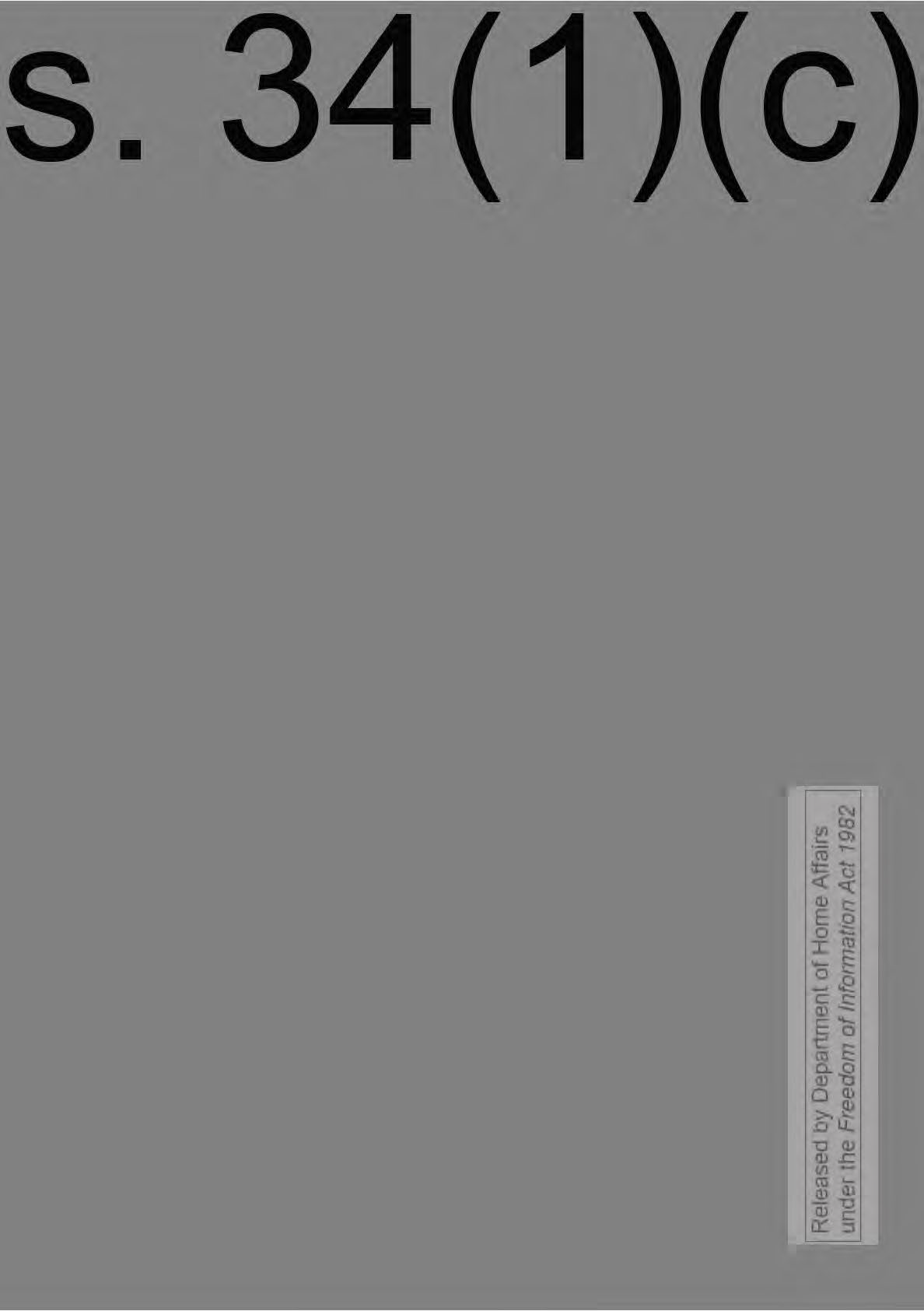






 PROTECTED
PROTECTED
Document 1.6
Submission
For decision
PDMS Ref. Number: MS24-001360
Date of Clearance: 25/7/2024
To
Minister for Immigration, Citizenship and Multicultural Affairs
Subject
Proposed legislative amendments for child visa applicants born in
Australia and living with a health condition or disability
Timing
Consideration by 21 August 2024, as amendments are proposed to be considered
by the Federal Executive Council in the Spring 2024 sitting period.
Recommendations
That you:
1.
agree to proposed amendments to Schedule 4 to the
agreed / not agreed / please
Migration Regulations 1994 (the Regulations) so that the
discuss
‘significant cost’ and ‘prejudice to the access to health care or
community service’ requirements under Public Interest
Criteria (PIC) 4005(1)(c) and PIC 4007(1)(c) do not need to be
met by child visa applicants with a disability or health
condition born and ordinarily resident in Australia.
Minister for Immigration, Citizenship and Multicultural Affairs
Signature………………………………………………
Date:……
25 /……./2024
07
PROTECTED
1
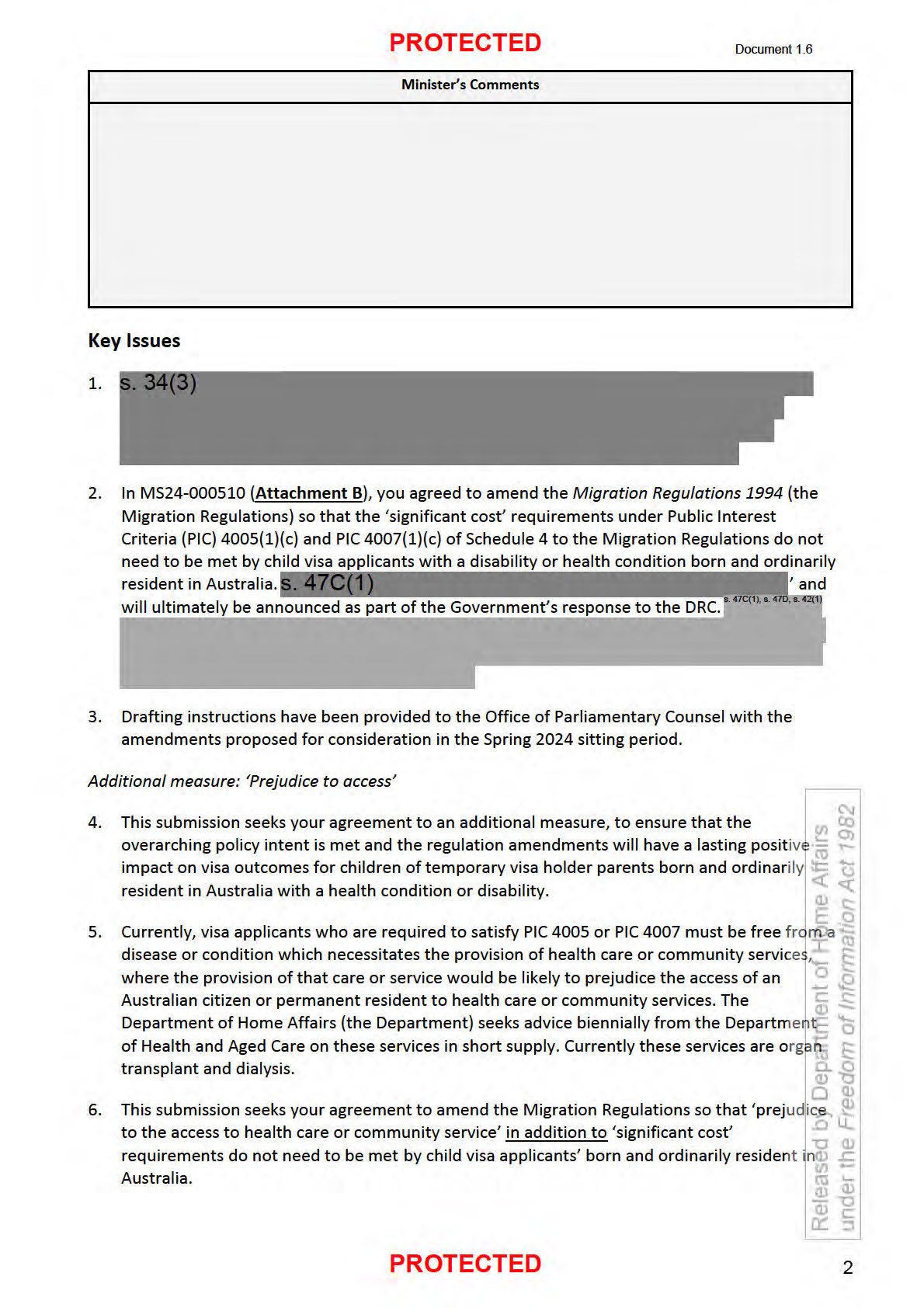
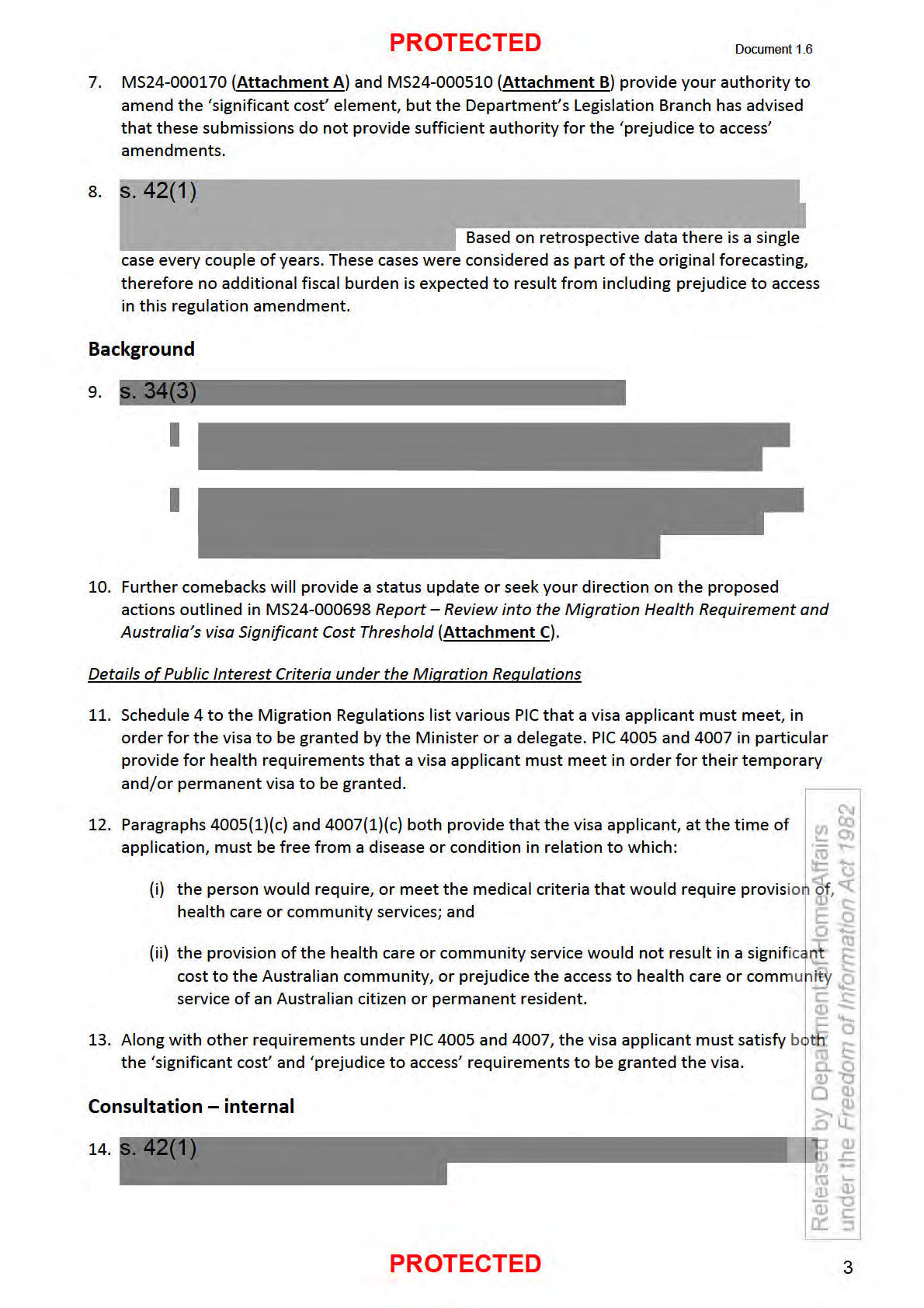
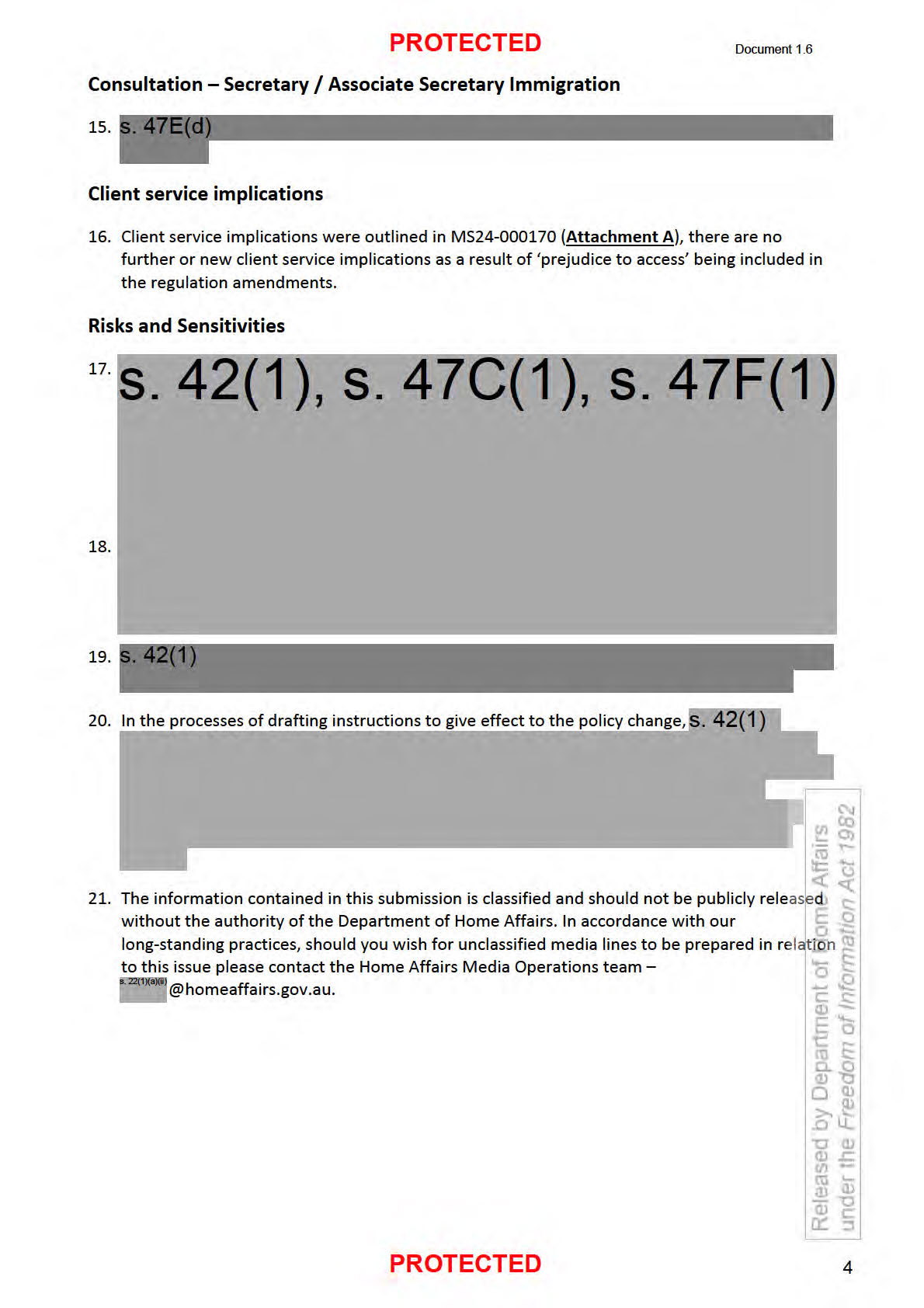
 PROTECTED
PROTECTED
Document 1.6
Attachments
Attachment A
MS24-000170 s. 34(3)
Attachment B
MS24-000510 s. 34(3)
Attachment C
MS24-000698 Report –
Review into the Migration Health Requirement and
Australia’s visa Significant Cost Threshold
Authorising Officer
Cleared by:
Dr Grant Pegg
Chief Medical Officer
Chief Medical Officer Branch
Chief Operating Officer Group
Date: 25 July 2024
Mob: s. 22(1)(a)(ii)
Contact Officer:
Senior Director, Health Policy and Assurance Branch, Chief Medical Officer Branch Ph:
s. 22(1
s. 22(1)(a)(ii)
Through Clear:
AS Legislation
CC
Minister for Home Affairs, Minister for Cyber Security
Associate Secretary Immigration
DS Chief Operating Officer
DS Executive
FAS Executive Coordination
FAS Immigration Programs
Assistant Secretary Legislation
PROTECTED
5
